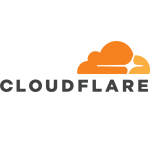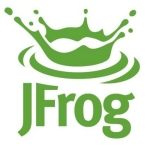What is our primary use case?
From a business perspective, our clients use Prisma Cloud by Palo Alto Networks to meet compliance and get more visibility into the cloud.
When people start their cloud journey, they do it per their business needs, but eventually, they reach a point where many infrastructures are created. Still, there aren't enough governance factors, so they buy Prisma Cloud by Palo Alto Networks for compliance from a government perspective. They also want to know how much infrastructure has been created and their exact locations, including their vulnerabilities against threats, and get more visibility into those threats and vulnerabilities.
We work with all models of Prisma Cloud by Palo Alto Networks, including data, container, and IM security.
Our clients are medium and enterprise clients, as the solution would take too much effort for small-sized businesses or clients.
What is most valuable?
What I found most valuable in Prisma Cloud by Palo Alto Networks is the VAS, such as the web application and API security, primarily because the solution goes in tandem with Kubernetes or the containers. This is why I feel that VAS adds a lot of value, mainly because it gives visibility through the application layer and threat detection features.
Another valuable feature of Prisma Cloud by Palo Alto Networks is the CSPM, simply because it's essential to understand what threats you'll face when starting your cloud journey or in the middle of your cloud journey.
The VAS and the CSPM are the most valuable features because they work in tandem to provide users with the required visibility.
A third valuable functionality you can get from the solution is the ability to investigate and build the correlation between the network, IAM, and other configurations. I saw a new level of maturity in this aspect from Prisma Cloud by Palo Alto Networks, which I didn't see from other solutions or vendors.
The solution also provides security for multi and hybrid-cloud environments. You can do AWS, Azure, etc., and even on-premises; wherever Kubernetes is supported, Prisma Cloud by Palo Alto Networks could support it.
Prisma Cloud by Palo Alto Networks also has a preventative approach to cloud security because it acts as a defense through prevention and banning.
I also saw that the solution is comprehensive in securing the entire development cycle, such as in building, deployment, and running, because it provides a dedicated CCS (Cloud Core Security) functionality, which is leverage.
Prisma Cloud by Palo Alto Networks has done great at the identity or ID, filter, VAS, and CCS levels.
What needs improvement?
Many more aspects can be covered in the cloud, but not all of them are addressed by Prisma Cloud, which can be one area for improvement.
For example, Prisma Cloud covers computing, network layer, identity and access management, and configuration management. Still, if you're looking for other aspects, such as ones beyond the cloud, the solution may not cover those. It can cover host containers, serverless and embedded apps, and PaaS, or aspects under computing, network connectivity, and identity and configuration management. Data may also be covered, but there is no data governance here in India. Storage may also be included, such as self-service GCS, but I did see that the solution is not very comprehensive, though you may not need all other aspects. Currently, Prisma Cloud only focuses on compute networking, data governance, and IAM, which could be improved.
As for the security automation capabilities of the solution, it is good, but there's still room for improvement because, at times, the access itself is not very consistent. My company has faced certain issues where it would have been better if the whole process, hub, or tool were more straightforward.
I also mentioned that the data governance functionality is not supported here in India, but Palo Alto Networks did not give an explanation about it.
My company also utilized GCP, and it was simpler. However, it did not have the intelligence of Prisma Cloud by Palo Alto Networks. Though Prisma Cloud by Palo Alto Networks provides excellent security, is a pioneer in this space, and knows what it's doing, from a user perspective, it would have been better if it was a little easier to use. Right now, my rating for the solution based on ease of use would be a four out of five or a nine out of ten.
In terms of Prisma Cloud by Palo Alto Networks providing visibility and control regardless of how complex or distributed cloud environments become, it does for complex and distributed environments in the networking aspect. However, this is not true in the identity aspect. The solution only manages Okta, Azure, and AD, but it does not support the most popular Google Workspace, so that is another downside of Prisma Cloud by Palo Alto Networks.
Prisma Cloud could also be improved by adding Google Workspace as an identity.
I also mentioned previously that the user experience in the solution could be better. It could be easier. For example, Elasticsearch and Chronicle both have SIEMs, and they made it easier for people, both cognitively and intuitively. Prisma Cloud by Palo Alto Networks talks about CWP, CSPM, SIEM, and DNS, for example. Still, if you look at its console, you won't find any of those terms mentioned, so a person who comes from the presentation to the theory to the practical world may not be able to find a correlation. If Prisma Cloud by Palo Alto Networks has some diagram that explains and allows users to understand all these, it becomes easier. Otherwise, it'll be a little steep for somebody to start the journey with this solution. This also means you need some security knowledge before you can even begin using Prisma Cloud by Palo Alto Networks.
The setup process for Defender in the solution also needs improvement as it takes a day or two, but that is not even mentioned in the portal, so many customers think that there is something wrong during the setup, only to eventually realize that it is normal and that it'll be okay in two to three days. Another example is setting up Auto-Defend in Prisma Cloud by Palo Alto Networks, where you'd think your AWS system was malfunctioning when the delay is caused by the logs not being updated faster. There should be documentation that explains the setup process and how many days it usually takes to complete the setup.
It's the same for onboarding, as it could take several days, so if the process could be made easier, that would help the customers. My company has received feedback that customers have generally found it challenging to start using Prisma Cloud by Palo Alto Networks, though it could still depend on the person.
For how long have I used the solution?
We've worked with and used Prisma Cloud by Palo Alto Networks for over two years.
What do I think about the stability of the solution?
Prisma Cloud by Palo Alto Networks has mostly been stable. However, there were some instances when it was not as stable, particularly the Defender setup, where it did not work for three days, so my team had to escalate, and then it suddenly worked. The issues usually happen during implementation, but you will not have as many challenges after it is implemented.
Stability-wise, the solution is a six out of ten for me.
What do I think about the scalability of the solution?
Prisma Cloud by Palo Alto Networks is scalable, mainly because it is cloud-based.
How are customer service and support?
My rating for the technical support provided by Prisma Cloud is four out of ten because it takes two to three days before support replies to you, and sometimes, you do not even get a valid or contextual answer. Sometimes, the team does not respond, and you do not even know if you will get a response. The technical support team has not been very friendly.
These are why I cannot give Prisma Cloud support a high rating.
How would you rate customer service and support?
How was the initial setup?
The initial deployment process for Prisma Cloud by Palo Alto Networks could be straightforward. Still, it becomes complex because of missing documentation that explains what happens during implementation and onboarding. Not everyone understands what needs to be done, so the process might look complex when it's not very complex.
The process requires you to onboard your account, set up your defenders and applications, and update specs and costs, but the available data could be more intuitive.
Deploying Prisma Cloud could take more than a day because the logs already take one day, plus it also depends on the number of hosts and containers.
What other advice do I have?
My company is a reseller for Palo Alto Networks, so it does the implementation, POC, and setup for customers.
In terms of Prisma Cloud reducing runtime alerts overall for clients, that would be up to the clients or customers. The solution is configured, so if you get a lot of alerts, you have to work towards burning down and making it contextual to your existing setup and what your business requires. From an implementation perspective, my company will set up the defaults, wait, and then work with the customer on how often they want to burn it down and contextualize it to their needs or requirements. Reducing runtime alerts is essentially up to the customers because if the customer gets a lot of alerts and does not spend time to make them contextual, then that customer will continue to get alerts. It is essential to make it contextual to your system if you want to reduce the alerts you receive.
Here is how I would rate Prisma Cloud by Palo Alto Networks: as a pioneer solution, and as it is cloud-based, and considering the security perspective, the solution is an eight out of ten, so the rating is high. However, in terms of setting it up and implementing it from a customer's point of view, Prisma Cloud by Palo Alto Networks becomes a seven out of ten. Not all things often work, and you still have many features you need to explore as a customer. Support for partners or the portal could also be better, where it should give more information, so the rating becomes a five out of ten. Overall, my rating for Prisma Cloud by Palo Alto Networks is a seven out of ten based on experience, but at this point, it could still be the market leader.
My company is a reseller, partner, and implementer of Prisma Cloud by Palo Alto Networks.
Disclosure: PeerSpot contacted the reviewer to collect the review and to validate authenticity. The reviewer was referred by the vendor, but the review is not subject to editing or approval by the vendor. The reviewer's company has a business relationship with this vendor other than being a customer: Partner
























